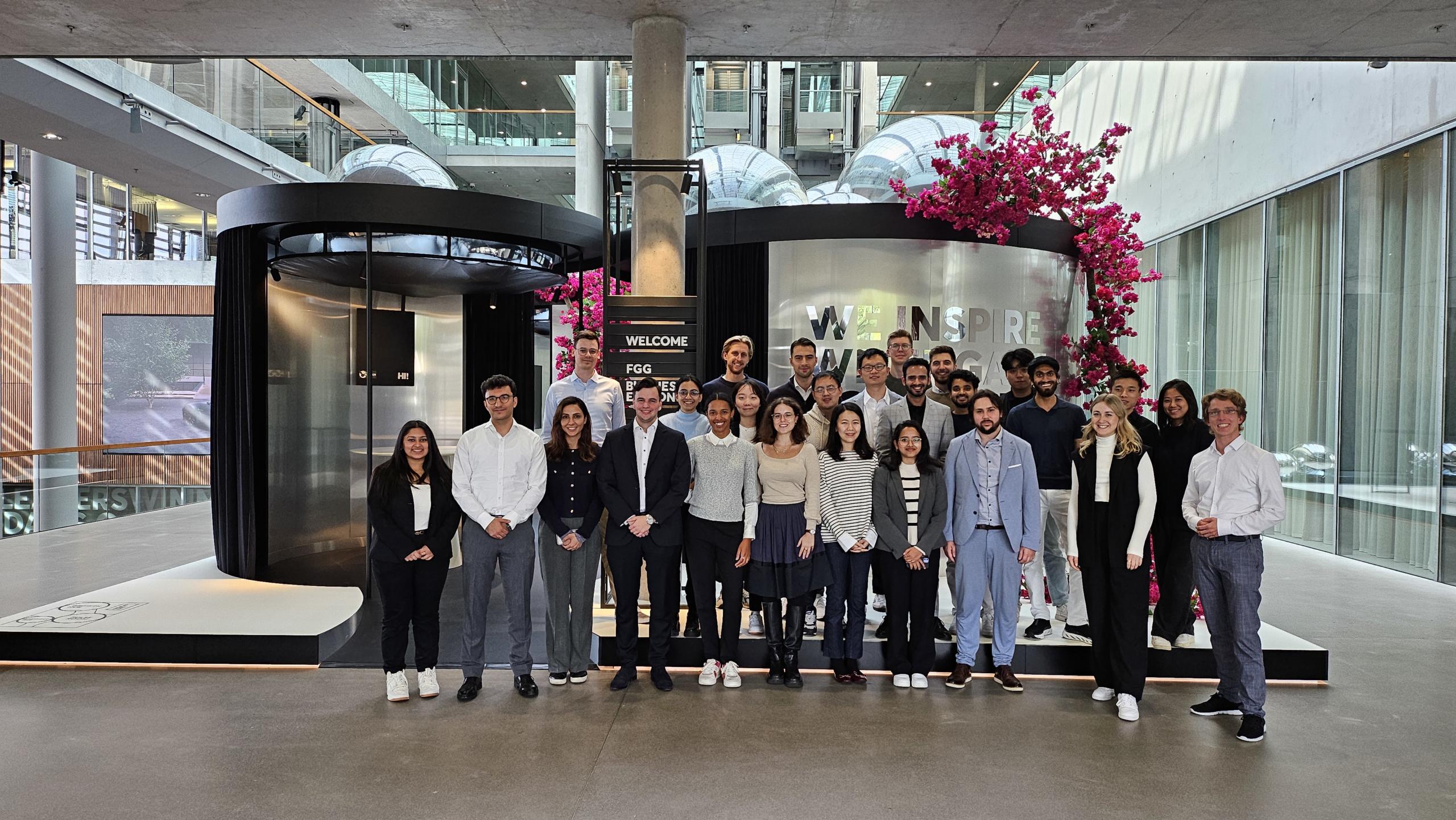The Master’s in Applied Data Science (MADS) programme offers a blend of technical learning and hands-on experience, making it both challenging and rewarding. What I appreciate most is the focus on applying data science to real-world problems. We don’t just focus on theory – we work on projects with industry partners that allow us to put what we’ve learned into practice. Whether machine learning, data analytics, or business strategy, the programme prepares us to use data to make meaningful impacts in any industry. The collaboration with Hugo Boss is an excellent example of how our coursework connects to real business challenges.
As a Master’s student in Applied Data Science (MADS), we often see how the theory we’re learning translates into practical, real-world applications. One of those opportunities came during our recent visit to the Hugo Boss headquarters in Metzingen. It was a unique chance to see how a leading global fashion company uses data science to drive key aspects of its business, particularly in employer branding.
The Hugo Boss headquarters in Metzingen reflects the brand’s modern and professional image. Located just outside Stuttgart, the office fosters a welcoming environment with open, collaborative spaces that encourage creativity and innovation. The company’s culture and values are integrated into the design, making it an inspiring workplace.
One might think of something other than fashion when it comes to data science, but it turns out that Hugo Boss is integrating data into their business in fascinating ways. We learned how data insights are being applied to enhance recruitment strategies and make better decisions about attracting and retaining top talent. Hugo Boss is looking at everything from employee satisfaction metrics to analyzing attrition patterns — all through the lens of data.
As part of the MADS programme and our Strategy and Performance Management course, we worked on group projects that directly connected with Hugo Boss’s focus on data-driven employer branding. The project was divided into three core areas: internal perception, external perception, and competitor analysis.
– Internal perception: The groups focused on how Hugo Boss is viewed by its employees, from young talent to C-level. They analyzed employee satisfaction engagement, and how perceptions varied across business functions like Corporate, Retail, and Logistics.
–External perception: The groups examined how the talent market perceives Hugo Boss as an employer. They identified key strengths, weaknesses, and emotional benefits that attract candidates to the brand while also analyzing differences in perception across various markets and business functions.
–Competitor Analysis: Our group, along with one more group, worked on the competitor analysis, comparing Hugo Boss to key competitors in terms of employer branding and attrition rates. We analyzed competitor positioning, differentiation factors, and trends in employee turnover. From this, we provided insights into how Hugo Boss could strengthen its retention strategies and stand out in the competitive landscape.
We used data from LinkedIn Talent Insights, Kununu, and surveys like Great Place to Work and Global Values Pulse Check. These provided insights into internal employee views and external market perceptions, helping us deliver actionable recommendations to Hugo Boss.
The visit to Hugo Boss wasn’t just a learning experience; it was inspiring. Seeing how data science can be used in such a creative industry showed me that the possibilities for data are endless. It’s not just about numbers and algorithms—it’s about how those things can influence and shape a company’s strategy, even in something as dynamic as fashion. This experience reinforced how the skills we’re learning can make a real impact, and I’m excited to explore more ways that data can be used to solve real-world challenges.

